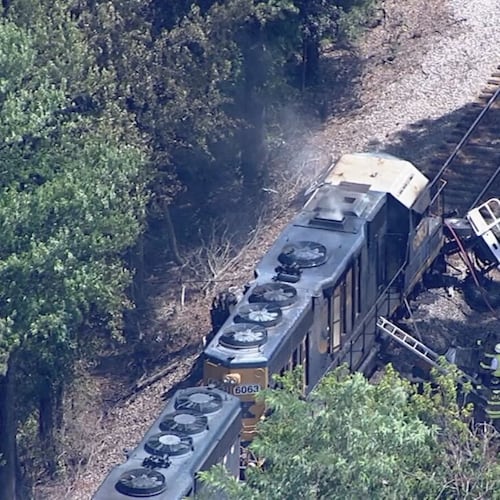Coronavirus-related state restrictions on public pools have expired, but the Georgia Department of Public Health is recommending those that choose to open take extra steps to keep workers and guests safe.
The health department released a seven-page guidance document for public pools Thursday morning, recommending procedures for social distancing, keeping public spaces and furniture clean and keeping sick people from using facilities.
READ | Metro Atlanta public pool openings delayed in summer of COVID-19
Most metro Atlanta pools do not have opening plans ready. Seasonal pools typically open for the summer around Memorial Day.
Officials in Atlanta and DeKalb and Cobb counties said Wednesday they still do not have plans for opening their pools for the summer season or for reopening the indoor pools that were shut in March due to the pandemic.
The city of Decatur does not yet have a plan to open its pools in the near future, according to spokesperson Renae Madison. Gwinnett County did not have any updated information about its pool opening schedule. Fulton County did not respond to an inquiry about its pool opening schedule.
When pools do reopen to the public, the state health department recommends frequent disinfection and cleaning of surfaces and furniture, limiting locker room use, frequently washing towels and enforcing social distancing through markings and physical barriers when possible. In the pools themselves, this could take the form of swim lanes or tape markers to signify six-foot distances between people.
Workers should be screened if they’re exhibiting symptoms on the job and should not report to work if they are sick, the health department said. The guidance does not include recommendations for screening guests, but does have guidelines for what pool facilities should do if they have a sick guest.
If someone starts exhibiting symptoms, including shortness of breath or fever, they should go home immediately and the local health department should be notified, according to the state guidance. Pools should close areas used by a sick person for 24 hours before cleaning and disinfecting them, the guidance says.
The health department also recommends modifying the layout of pool facilities to prevent people from gathering or getting within six feet of someone they do not live with. This could include having fewer lounge chairs and spacing seating areas further apart. Patrons should also be limited to those who live in the “local area” when possible, the health department document says.
Pool staff are encouraged to stick to specific roles; lifeguards should not perform tasks beyond water safety in order to prevent the need for a mask or frequent hand washing, for example. There should be one staff member designated as a point of contact for all COVID-19 concerns, according to the health department.
The department recommends canceling large organized events and classes at pools in order to reduce crowd sizes and prevent the spread of the virus. Pool operators should consult their local health department or government officials to determine if smaller events, like swim lessons and fitness classes, are safe to proceed.
Gov. Brian Kemp extended some restrictions Monday as part of a statewide public health emergency, keeping businesses like bars and nightclubs closed. But other measures, including those closing public pools, were allowed to expire as of May 14. Pools — including those at hotels, apartments, condominiums and subdivisions — can now open to swimmers as long as they’ve received the proper permits and inspections on the local level, said Candice Broce, a Kemp spokeswoman.
The full Department of Public Health guidance on pools can be found on its COVID-19 resources page.
Staff writers JD Capelouto, Kristal Dixon and Raisa Habersham contributed to this story
About the Author
Keep Reading
The Latest
Featured
